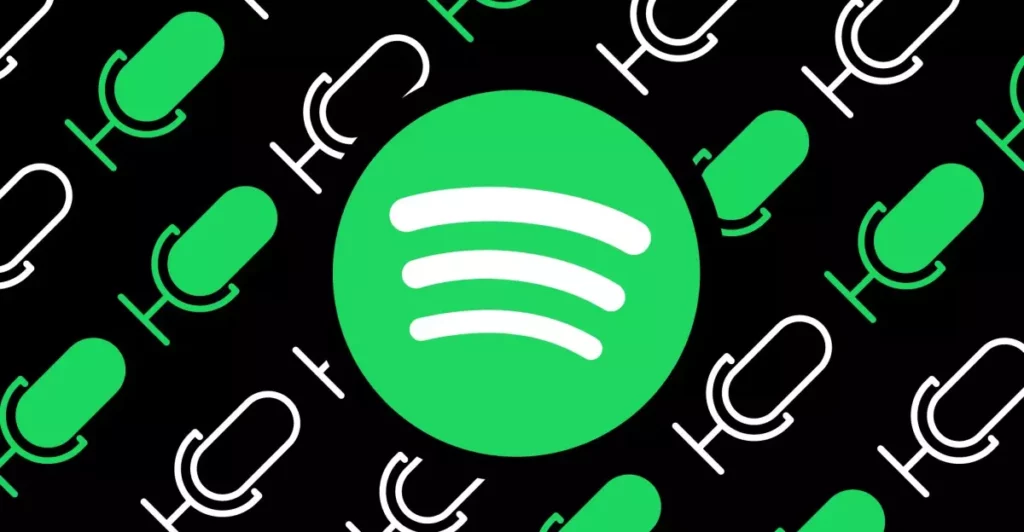In a world where digital content consumption continues to evolve at a breathtaking pace, Spotify is taking bold steps that could dramatically alter the audiobook landscape. With an innovative update targeting iPhone users, Spotify is not merely enhancing the user experience; it is actively setting the stage for a showdown with the long-standing monopoly held by Apple. By making audiobook pricing transparent and accessible, they are demanding a reevaluation of how digital content is bought and sold. This isn’t just a marketing strategy; it’s a revolution against an outdated retail model that has favored corporate giants over consumers.
The context for this upheaval is rooted in recent judicial battles that have highlighted the problematic nature of Apple’s stringent controls over app markets. The ruling by Judge Yvonne Gonzalez Rogers during the Epic Games v. Apple trial opened the floodgates, exposing a monopolistic grip that Apple had maintained for too long. Spotify’s audacious leap towards direct pricing not only embraces user autonomy but resonates with a larger fight for fairness in digital marketplaces.
A New Dawn for Developers
Spotify’s decision is not solely advantageous for consumers; it opens new avenues for app developers and content creators as well. With fewer barriers to entry and reduced commission fees, aspiring authors and narrators can monetize their work more effectively. This democratization of digital content could usher in an era where creators are celebrated not just for their craft but also for their entrepreneurial spirit. Imagine a platform where creators don’t bleed financially, where they can deliver their visions without succumbing to the profit-driven motives of intermediary platforms.
The ramifications of this policy change are significant. Empowered by increased autonomy, developers are likely to explore innovative models of engagement that highlight value over volume. Gone are the days of losing a significant portion of earnings to corporate behemoths. Instead, we could witness a flourishing of diverse voices and stories in the audiobook format, enriching the marketplace and, ultimately, the user experience.
The Consumer’s Triumph
For audiobook lovers, the implications of Spotify’s update are nothing short of exhilarating. Audiobooks have surged in popularity, and yet the consumer experience has often been marred by obscure pricing structures and convoluted purchasing processes. Spotify’s move towards a simpler, transparent buying experience aligns perfectly with what consumers have been yearning for. It shifts the focus back to enjoyment—the very reason we engage with audiobooks in the first place.
In an era where convenience is king, Spotify’s approach prepares the ground for informed consumer choices and straightforward transactions. Instantly, users will applaud the clarity that comes with upfront pricing, free from the unnecessary complexities often introduced by third-party platforms. The user’s journey should be fluid—purchasing an audiobook should feel as seamless as immersing oneself in its narrative.
Implications Beyond Audiobooks
While Spotify’s current focus may be on audiobooks, the implications of this shift transcend the boundaries of just one genre. The rebirth of consumer autonomy could inspire a domino effect across various digital content industries—from gaming to streaming, each could find itself reassessing its pricing strategies and app store models. The potential for a realignment of revenue models is enormous, offering the promise of a more vibrant and diverse array of content.
Competitors in the market are already taking notice. Platforms like Kindle and Patreon are likely to pivot and adapt to create competitive advantages in response to Spotify’s strategic leap forward. This could lead to an unprecedented renaissance in content availability and access, shifting the balance of power from sizable corporations to the creators themselves—the very individuals who fuel the industry.
Spotify: A Champion for Change
Spotify’s audacious move in pursuing this new model reflects a substantial shift in the narrative surrounding digital content consumption. By insisting on fair access and transparency, they are effectively advocating for the rights of consumers and creators alike. With the potential for significant improvements for both parties, it seems that Spotify is not just a music platform, but a formidable champion for positive change in the digital landscape.
Regardless of the upcoming proceedings as Apple strives to maintain its control, Spotify’s proactive stance signals a watershed moment that could transform how we think about digital content, consumer rights, and the power of transparency in an increasingly complex ecosystem driven by technology and innovation.









Leave a Reply